第6章 "OUR OLD KING OR NONE"(3)
At Buenos Aires acute difference of opinion--about the extent to which the movement should be carried and about the permanent form of government to be adopted as well as the method of establishing it--produced a series of political commotions little short of anarchy. Triumvirates followed the junta into power; supreme directors alternated with triumvirates; and constituent asmblies came and went. Under one authority or another the name of the viceroyalty was changed to "United Provinces of La Plata River";a seal, a flag ,and a coat of arms were chosen; and numerous features of the Spanish regime were abolished, including titles of nobility, the Inquisition, the slave trade, and restrictions on the press. But so chaotic were the conditions within and so disastrous the campaigns without, that eventually commissioners were sent to Europe, bearing instructions to seek a king for the distracted country.
When Charcas fell under the control of the viceroy of Peru, Paraguay set up a regime for itself. At Asuncion, the capital, a revolutionary outbreak in 1811 replaced the Spanish intendant by a triumvirate, of which the most prominent member was Dr. Jose Gaspar Rodriguez de Francia. A lawyer by profession, familiar with the history of Rome, an admirer of France and Napoleon, a misanthrope and a recluse, possessing a blind faith in himself and actuated by a sense of implacable hatred for all who might venture to thwart his will, this extraordinary personage speedily made himself master of the country. A population composed chiefly of Indians, docile in temperament and submissive for many years to the paternal rule of Jesuit missionaries, could not fail to become pliant instruments in his hands. At his direction, therefore, Paraguay declared itself independent of both Spain and La Plata. This done, an obedient Congress elected Francia consul of the republic and later invested him with the title of dictator. In the Banda Oriental two distinct movements appeared.
Montevideo, the capital, long a center of royalist sympathies and for some years hostile to the revolutionary government in Buenos Aires, was reunited with La Plata in 1814. Elsewhere the people of the province followed the fortunes of Jose Gervasio Artigas, an able and valiant cavalry officer, who roamed through it at will, bidding defiance to any authority not his own. Most of the former viceroyalty of La Plata had thus, to all intents and purposes, thrown off the yoke of Spain.
Chile was the only other province that for a while gave promise of similar action. Here again it was the capital city that took the lead. On receipt of the news of the occurrences at Buenos Aires in May, 1810, the people of Santiago forced the captain general to resign and, on the 18th of September, replaced him by a junta of their own choosing. But neither this body, nor its successors, nor even the Congress that assembled the following year, could establish a permanent and effective government.
Nowhere in Spanish America, perhaps, did the lower classes count for so little, and the upper class for so much, as in Chile.
Though the great landholders were disposed to favor a reasonable amount of local autonomy for the country, they refused to heed the demands of the radicals for complete independence and the establishwent of a republic. Accordingly, in proportion as their opponents resorted to measures of compulsion, the gentry gradually withdrew their support and offered little resistance when troops dispatched by the viceroy of Peru restored the Spanish regime in 1814. The irreconcilable among the patriots fled over the Andes to the western part of La Plata, where they found hospitable refuge.
But of all the Spanish dominions in South America none witnessed so desperate a struggle for emancipation as the viceroyalty of New Granada. Learning of the catastrophe that had befallen the mother country, the leading citizens of Caracas, acting in conjunction with the cabildo, deposed the captain general on April 19, 1810, and created a junta in his stead. The example was quickly followed by most of the smaller divisions of the province. Then when Miranda returned from England to head the revolutionary movement, a Congress, on July 5, 1811, declared Venezuela independent of Spain. Carried away, also, by the enthusiasm of the moment, and forgetful of the utter unpreparedness of the country, the Congress promulgated a federal constitution modeled on that of the United States, which set forth all the approved doctrines of the rights of man.